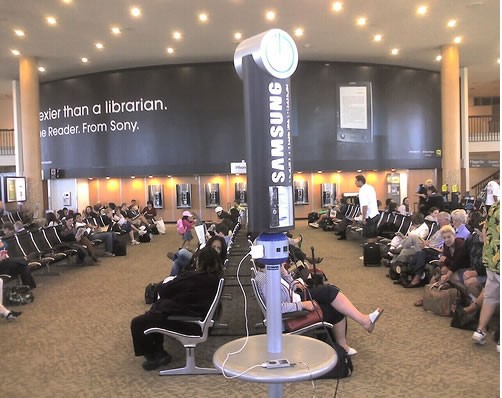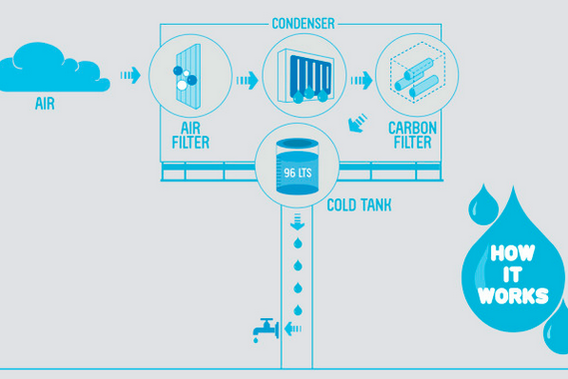Are businesses ever truly altruistic? It’s a debatable question, but there is a new phenomenon sweeping the world of marketing: the utilitarianism marketing. Utilitarianism marketing provides a valuable service to customers, whether they ever pay a penny to the company itself or not. It is a truly selfless look at what people might need and taking an action to help make their lives better.
The sad truth is that there are not a lot of brands that agree to spend their resources on providing utility without forcing droves of their own marketing/sales messages on the world. But there are some that execute it with grace and strike a good balance between utility and marketing.
Let’s take a look at some of the best ones around.
IBM’s Smarter Cities
The greatest thing about IBM’s Smarter Cities campaign is that even its advertising is smart. Their range of benches, ramps and shelters were designed to be “not only beautiful, but useful to city dwellers”. The campaign aimed to draw people’s attention to IBM’s forum for sharing ideas for how to build and empower smarter cities – and in doing so produced some smart-city ideas of their own.
Vanish’s Tip Exchange
Vanish stain remover is one of the biggest-selling products in the industry, but the brand was worried that their advertising was not “hitting the right tone” so they developed the @TPSbag Twitter handle to encourage customers to share their stain-removal tips, as well as introducing the stain-solver page on their website. It’s a whole different approach to marketing which lets customers do the talking and sharing (as well as providing utility), rather than the brand dominating the conversation. It empowers customers with useful and accurate knowledge, while associating the brand with positive solutions.

Samsung’s mobile phone charging stations
It’s one of those ideas that is so blindingly obvious that once you’ve seen it you wonder how no-one has thought of it before. What do travelers need to do at airports? Charge their phones. Cue Samsung’s phone charging hubs that allow passengers to charge their phones before they travel – but that put Samsung’s name in large letters in front of their eyes. Yes, it does help raise Samsung’s profile, but it provides a hugely useful service to airport users.
The University of Engineering and Technology of Peru’s water-producing billboard
The drought-hit city of Lima, Peru has a reason to celebrate the University of Engineering and Technology of Peru. In an ingenious attempt to raise awareness of the importance of careers in engineering, the university installed the world’s first water-producing billboard that creates drinking water out of thin air through its inbuilt reverse osmosis technology. The billboard can produce 9540 liters of water over three months, helping hundreds of families – and maybe inspiring the next generation of engineers to study at the university.
How do you create your own effective utility marketing campaign?
- Think about what your customers really need.
- Stay true to your brand’s core messages.
- Put the service first – and the marketing second.
- Aim for loyalty, not sales.
- Think longer-term rather than instant ROI.
- Put your resources behind inspiring advocacy and nurturing positive word of mouth rather than creating short-term one-off marketing campaigns.
Utilitarianism marketing is all about heart. That’s why brands find it so hard to execute – the first reaction from marketers usually is: “How can we get our marketing message on this?” But building loyalty is a long-term game and caring about others have to come before caring about sales. You’ve got to remember that through advocacy, loyalty and authentic engagement, you will build the sort of super-customers whose brand devotion will last long after traditional marketing campaigns have been forgotten.
So – sexy or useful? These campaigns show that marketing can be both.
Originally posted in Fast Company



